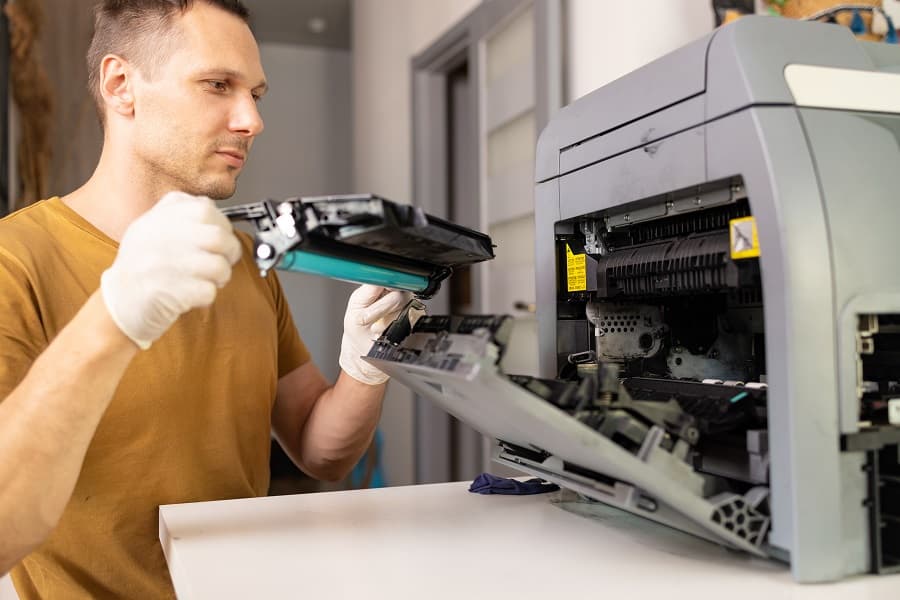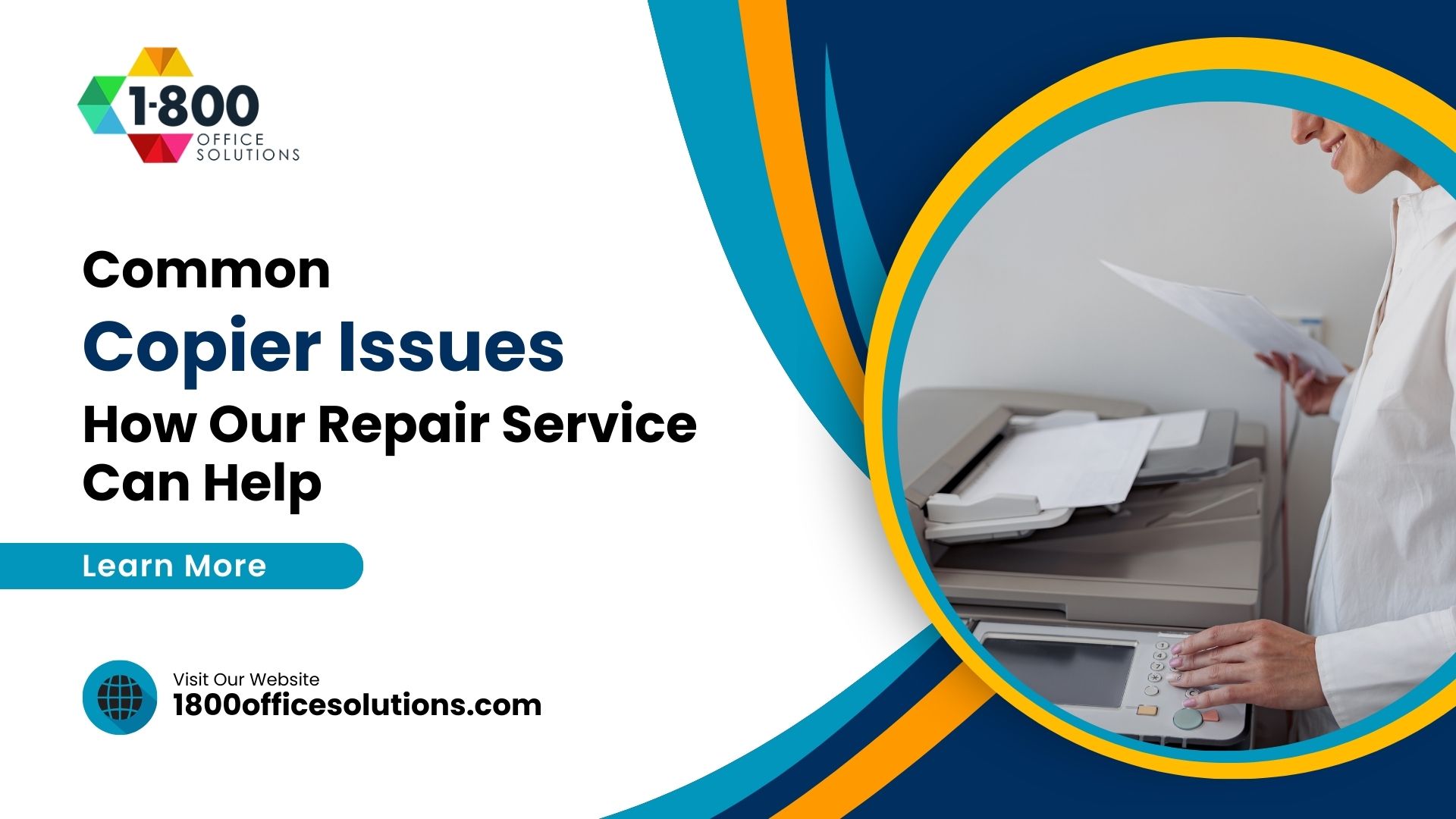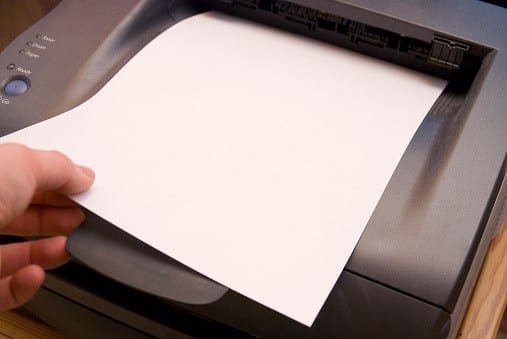Understanding Your Copier Lease Agreement: Key Terms and Conditions Explained
Copier Lease Agreement
The copier lease agreement is a legally binding document that outlines the terms and conditions of the lease. It can be a daunting task to understand all the elements of a copier lease agreement. Leasing a copier can be a great choice for companies that want to save thousands of dollars upfront and have a lower monthly payment. However, it is important to understand the contract terms and to be aware of the end of the lease, the lease term, the lease payment, and the fair market value (FMV).
Leasing companies provide an attractive option to businesses that need office equipment. It is important to know about copier lease contracts and the different types of leases available – from short-term leases of 24 to 60 months to longer leases with renewal options. There are also additional equipment and services that can be included in the lease.
Overview of a Copier Lease Agreement
A copier lease agreement is a legally binding document that outlines the terms and conditions of leasing a copier from a dealer. It is important to understand the key terms and conditions of the agreement before signing. There are three main types of leases to choose from – a full service leasing agreement, a fair market value lease, and a buyout lease.
The benefits of leasing a copier are many. You may be able to avoid having to pay thousands of dollars upfront for a new copier, and instead pay a lower monthly bill with a longer lease term.
What Is a Copier Lease Agreement?
With the idea of renting versus buying equipment firmly in mind, let’s look at a copier lease agreement in particular. A copier lease agreement is an agreement between a vendor and a lessee that allows the lessee to “lease a copier” for a set period of time.
This agreement outlines the terms and conditions necessary for the lease, such as the length of the lease, the monthly payments, and the type of lease. It may also include a maintenance agreement or service agreement that are separate from the lease document.
Benefits of Leasing a Copier
Leasing a copier can offer many advantages for businesses. From avoiding high upfront costs to having the ability to upgrade machines, there are numerous benefits to leasing a copier over purchasing one.
The option to upgrade machines is one of the more attractive benefits of leasing. Instead of being stuck with a machine that eventually becomes outdated, you can always choose to upgrade when the end of your lease is nearing. This can help businesses stay up-to-date on the latest office equipment and technologies.
Another great benefit of leasing a copier is that you can avoid having to pay thousands of dollars upfront. By spreading out the payments over a longer lease term, businesses can free up their cash flow and invest in other areas of the business.
Key Terms and Conditions
When signing a copier lease agreement, it is important to know the key terms and conditions of the contract. The most basic copier lease agreement should include the length of the lease, the make and model of the copier, the cost of the copier, the lease payment, the current lease expiration date, and the buyout option at the end of the lease term.
In addition, it is important to understand the difference between leasing and buying a copier and how a copier lease works. A copier lease might also include a maintenance contract, a service contract, a toner agreement, and occasionally an agreement for additional equipment.
Payment Terms
When negotiating a copier lease agreement, there are three main components to consider: Monthly Payments, Length of the Lease, and Early Termination Fees.
The monthly payment amount is typically determined by the type of copier purchased, its purchase price, the desired lease term, any additional equipment included, and shipping fees. Many copier dealers will offer attractive options such as lower monthly payments or a longer lease term if you commit to a high volume purchase. It is important to negotiate the best terms possible in order to avoid thousands of dollars in additional payments in the future.
Monthly Payments
Understandably, one of the most important factors in deciding whether to buy a copier or enter into a copier lease agreement is the monthly payments. When it comes to leasing, you are responsible for paying a set amount every month for the length of the lease.
This can range from lower monthly payments for a longer lease term to higher monthly payments for a shorter lease term. If you want to purchase a Xerox, or any other copier, you can opt for purchasing outright or entering into a separate leasing agreement. If you choose to lease, you’ll need to make sure you understand the terms stated in the agreement such as the cancellation clause, surcharge fees, shipping fees, expiration date, and any additional equipment.
Length of the Lease
The length of the lease is a crucial part of the copier lease agreement. It is the legal connection between the lessor and lessee that binds the two parties to the terms of the contract. Depending on the type of agreement, the length of the lease can range from one month to longer terms such as two, three, four or five years. The longer the lease term, the lessor may offer a lower monthly payment, but at the end of the lease, the lessee will need to return the machine or pay a fair market value buyout.
Leasing a copier or other office equipment can be a more attractive option than purchasing a machine outright, as it allows companies to avoid thousands of dollars of upfront costs.
Early Termination Fees
Now that you know the basics of a copier lease agreement, it’s important to understand the payment terms, including Early Termination Fees. Early Termination Fees are applicable when a lessee decides to terminate the lease agreement before the expiration date.
You may be liable to pay thousands of dollars if you choose to terminate the agreement early. Depending on the leasing company and contract terms, you may be able to avoid paying Early Termination Fees if you notify the lessor before the expiration date. It is also possible to return the machine at the end of the lease term and avoid additional shipping fees.
You must adhere to the legally binding terms stated in the basic copier lease agreement.
Maintenance and Service
When it comes to maintenance and service, there are three main considerations: scheduled maintenance, parts and repair costs, and technical support. Companies must decide whether to purchase or lease office equipment. While leasing an office copier may be an attractive option, it is important to read the contract terms and understand the expiration date and return requirements. It is also important to consider the costs associated with parts and repairs.
Additionally, companies must consider technical support options and whether they need additional equipment, such as printers or scanners, to manage their print needs. If the company has high volume needs, it is important to negotiate a lower monthly payment or choose a longer lease term.
Scheduled Maintenance
Moving on from Payment Terms, Scheduled Maintenance is a critical aspect of any basic copier lease agreement. As the lessor, you are ultimately responsible for ensuring that the leased copy machine stays in working condition throughout the duration of the lease. While many manufacturers offer separate maintenance and service contracts for their products, it’s important to understand that these are separate from your lease and you may not need to pay for them.
Leasing vs buying or purchasing a copier is a common choice for many companies, especially those that require high volume and office equipment. Leasing provides an attractive option for businesses by allowing them to pay a lower monthly rate plus interest and a fair market value (FMV) buyout option at the end of the lease expiration date.
Parts and Repair Costs
Having discussed the payment terms for a typical basic copier lease agreement, it is important to understand the maintenance and service involved with your choice for companies interested in buying or leasing office equipment. In particular, parts and repair costs are an integral part of the lessor and lessee’s agreement.
The managed print services and technical support available through the lessor will help you stay up-to-date on any necessary repairs. For the most part, the leasing company will cover the cost of shipping fees, minor repairs, staple parts, and maintenance. The contract terms will also state whether or not the lessee is responsible for additional equipment. In some cases, the lessee may be liable for thousands of dollars in repair costs.
Technical Support
Once you have a basic copier lease agreement in place, clients can feel free to reach out to us for technical support. We provide a wide range of service options, such as preventive maintenance, part replacement, repairs, and troubleshooting. Our team of experts is available around the clock to help with any problems businesses may encounter.
We also provide remote support, so our clients can quickly get back to printing and copying without having to wait for someone to come onsite. We understand that businesses may have limited time and resources to devote to technical issues, so our goal is to provide them with a reliable and efficient service. We take pride in offering fast, accurate solutions to make sure our clients have the information and help they need.
Delivery and Installation
When it comes to delivery and installation, there are three main components to consider: Delivery Dates and Times, Installation Costs, and Who is Responsible for Setup. Companies have the choice for buying or leasing office equipment, so understanding the delivery and installation process is a key factor in making the right decision.
Delivery dates and times are agreed upon in the basic copier lease agreement and the lessee is expected to notify the lessor if changes are needed. Shipping fees may be included in the cost of the lease, but it’s important to understand the terms stated in the contract.
Delivery Dates and Times
When considering delivery dates and times, it is important to ensure that the office equipment arrives in a timely manner. Your basic copier lease agreement should stipulate a delivery date and, if possible, a window of time for delivery. This way, both the lessor and lessee are on the same page as to when the equipment will arrive.
Thousands of dollars in office equipment can be purchased or leased, making it an attractive choice for companies. Before signing a legally binding contract, make sure to review the terms stated, which should include the delivery date, time, and any associated shipping fees. If there are any changes to the delivery date, both parties must be notified in advance.
Installation Costs
When it comes to installation costs, there are three main options for companies looking to lease a copier. The first and most attractive option is to include the installation costs in the basic copier lease agreement. This option allows the lessor to pay a lower monthly lease rate with all up-front costs already taken care of.
The second option is to pay the installation costs separately, which can sometimes be thousands of dollars. This is a good choice for companies who are looking to avoid the up-front costs, but this can add on to the overall amount that the company will pay per month. The final option is to pay the installation costs up-front with the agreed upon lease terms, which can help companies save on the total cost of the lease.
Who Is Responsible for Setup?
From the logistics of delivery dates and times, to the costs associated with installation, the leasing process is more than just signing a basic copier lease agreement. At the end of the lease, who is actually responsible for setup? It is an important question to ask, as thousands of dollars in office equipment may be on the line.
When it comes to buying or leasing, the lessor is typically responsible for setup. As long as the contract terms are agreed upon, the lessee is able to avoid any additional shipping fees. However, the terms stated in the lease may differ from this, as the lessor may wish to defensively staple in some additional responsibilities.
Insurance Requirements
When it comes to insurance requirements for office equipment, there are three main types of coverage to consider: Equipment Insurance, Property Damage Liability, and Liability Coverage. Equipment Insurance covers the cost of the office equipment in case of theft or damage.
Property Damage Liability helps in the event that the equipment causes damage to another party’s property. Liability Coverage provides protection in the event of an injury to any party from the equipment.
Leasing companies may require the lessee to purchase an insurance policy or add additional equipment to an existing policy.
Equipment Insurance
Now that the delivery and installation of the office equipment have been discussed, it is time to move onto insurance requirements. Equipment insurance is a key component of a basic copier lease agreement, and provides an extra layer of protection for both the lessee and the lessor. Equipment insurance protects the lessee in the event that the machine is damaged, destroyed, or stolen, and it also protects the lessor from liability in the event of property damage or personal injury caused by the leased equipment.
Notifying the lessor of the equipment insurance policy is essential, and the terms of the policy should be stated in the contract. In most cases, the lessor will require that the lessee have the equipment insured throughout the duration of the lease.
Property Damage Liability
Taking the next step in the leasing process, insurance requirements are an important factor to consider. Property Damage Liability is a key component to any basic copier lease agreement. This type of coverage provides protection in the event of property damage caused by the lessee. It is wise to investigate the dollars limits of coverage, as thousands of dollars of damages could arise from an incident.
The choice for companies is whether to lease or buy office equipment. Buying or leasing can be a difficult decision, but signing a lease with a lessor could be an attractive option. Property Damage Liability coverage is important to take into account when signing a contract, as there are terms stated in the lease that need to be agreed upon.
Liability Coverage
To ensure that the contractual agreement between the lessor and lessee is complete, a liability coverage clause is often included in the basic copier lease agreement. This clause allows the lessee to be protected in the event that property damage or injury results from the use of the leased equipment.
Liability coverage is an attractive option for companies who cannot risk the thousands of dollars in fees associated with an incident. The contract terms may include a fixed amount of coverage or a percentage of the machine’s fair market value (FMV). The lessee may also be responsible for notifying the lessor of any additional equipment that may be added to the lease in order to ensure that the liability coverage is adequate.
Usage Limitations
When it comes to usage limitations associated with a basic copier lease agreement, three main factors that need to be taken into account are the maximum pages per month, number of copies, and prohibited uses. The maximum number of pages that can be printed per month is an important factor to consider, as it will determine the cost of the lease and the amount of office equipment that will be necessary.
The number of copies allowed will also affect the cost, as some providers charge for additional copies or charge a higher rate for higher volume.
Maximum Pages per Month
When it comes to usage, the basic copier lease agreement will typically specify a maximum number of pages that can be printed per month. This is to ensure that companies do not exceed their leased copier’s capabilities and that the lessor can plan for the expected wear and tear. For those interested in leasing office equipment, this is an important choice for companies to consider. While buying or leasing may have upfront costs, leasing often has lower monthly payments and can avoid thousands of dollars in additional costs such as shipping fees and stapling.
Though the terms stated in the contract may in some cases intimidate the average person, they are legally binding and provide an attractive option for companies. The fair market value (FMV) is determined by the three main components:
Number of Copies
Moving on from insurance requirements, usage limitations are an important factor to consider when leasing a copier. The number of copies an organization can make is typically specified within the basic copier lease agreement. Companies who wish to make thousands of copies each month should be aware of the maximum pages per month the lease allows. If an organization exceeds this limit, they may be subject to additional charges, as specified in the agreement and agreed upon by both the lessor and lessee.
The contract terms will also specify the number of copies an organization is allowed to make with their leased copier. This will depend on the specific model chosen, as some are more suitable for high volume usage than others.
Prohibited Uses
When it comes to using the equipment, there are certain prohibited uses that must be adhered to as outlined in the basic copier lease agreement. These uses are in place to protect both the lessor and lessee, and violation of these terms can lead to large penalties.
As outlined in the contract, it is prohibited to use the equipment for any illegal purpose, or for the purpose of copying materials that are copyrighted or trademarked without the explicit permission of the copyright or trademark holder. It is also prohibited to use the machine to copy items that could be seen as offensive or obscene, and the lessee must notify the lessor if this type of material is being copied.
Terms of Renewal
When it comes to the terms of a copier lease renewal, there are three main options. Companies can choose to lease early and pay a lower monthly rate, agree to the same terms stated in their original contract, or upgrade their equipment and pay the additional shipping fees. Companies can also choose to buy or lease additional equipment, such as a high volume printer or copier, to meet their office needs.
Leasing is an attractive option for companies looking to avoid spending thousands of dollars upfront to buy the equipment. A lessor is legally bound to the contract terms, including the expiration date and the monthly payment agreed upon.
Renewal Options
Now that you understand the usage limitations of a basic copier lease agreement, it’s time to look at your renewal options. There are three main choices for companies looking to extend their leases: lease early, pay a monthly fee, or purchase additional equipment. Leasing early is an attractive option for companies looking to avoid paying thousands of dollars in shipping fees and installation costs.
By renewing your lease before the expiration date, you are also able to avoid the potentially higher monthly fees due to contract terms that may have changed since you signed the original agreement. Alternatively, you may choose to pay a lower monthly fee if you notify the lessor of your intent to renew your lease before the expiration date.
Renewal Fees
Leasing customers have several renewal options to choose from, with renewal fees being a primary concern. Depending on the terms of the basic copier lease agreement, customers may be able to lease early and pay a lower monthly amount than the original contract terms. But it is important to notify the lessor before the expiration date so they can plan for the return of the machine and any additional equipment.
Buying or leasing office equipment can be a daunting task for companies with thousands of dollars on the line. A copier lease agreement can seem intimidating, but it is important to remember that it is a legally binding document. By opting for leasing, businesses are able to avoid the upfront costs associated with buying and the long-term commitment of a purchase.
Equipment Upgrades
Moving on from the usage limitations, another key factor for companies to consider when renewing a basic copier lease agreement is the availability of equipment upgrades. Working with a leasing company provides the opportunity to upgrade equipment in order to take advantage of newer technology and make the most of the current lease term. Upgrading may be as simple as replacing the copier with a higher-end version or as complex as adding thousands of dollars of additional equipment.
The cost of an upgrade depends on the contract terms previously agreed upon with the lessor. Notifying the lessor ahead of the expiration date may allow the company to lower their monthly payments by upgrading the equipment.
Cancellation Policy
Lease cancellation is a key feature of a basic copier lease agreement that offers companies the flexibility to end their lease should their needs change. Companies that have signed a copier lease agreement may be required to pay a monthly lease payment for thousands of dollars worth of office equipment for the duration of the contract, or until the agreed upon expiration date.
To lower monthly payments, some companies may opt to return the machine instead. As long as the lessee follows the terms stated in the contract, they should be able to avoid any cancellation fees or additional shipping fees.
Notice Requirements for Cancellation
Now that we have discussed the terms of renewing a basic copier lease agreement, it’s time to move on to the cancellation policy. Notice requirements for cancellation are an important part of any contract, as it allows the lessor to plan for any changes to the agreement. Depending on the terms stated in the contract, lessees may be required to give advanced notice of their decision to terminate the agreement. This gives the lessor an opportunity to find a new tenant, as well as return the machine and any additional equipment if applicable.
At the same time, it also allows lessees to avoid paying thousands of dollars in fees, as they will be able to notify the lessor of their decision before the expiration date of the contract.
No-Penalty Cancellations
Having gone over the Terms of Renewal, it is also important to understand the Cancellation Policy. Among the topics of Notice Requirements for Cancellation, No-Penalty Cancellations, and Cancellation Fees, we will focus on No-Penalty Cancellations.
The lessor may be able to end the lease early, without any penalty in some cases. The basic copier lease agreement may stipulate that the lessee only needs to pay the monthly payments due until the end of the lease term. This can be beneficial to the lessee, as they can avoid thousands of dollars in lease payments. It is an attractive option for companies who want to purchase or lease office equipment or upgrade their current machines.
Cancellation Fees
To ensure that clients are able to fully comprehend their rights and obligations under the basic copier lease agreement, it’s important to discuss cancellation fees. Cancellation fees are a penalty for ending the lease early, and they can be a significant amount of money.
Depending on the terms stated in the contract, a lessor may charge thousands of dollars for canceling a lease. In some cases, it may even be more affordable for a company to pay a monthly lease fee for a longer period of time instead of paying the cancellation fees. When it comes to the cost of buying or leasing office equipment, a basic copier lease agreement can be an attractive option for companies, especially if they want to avoid hefty cancellation fees.
Conclusion
Leasing a copier is an attractive option for companies looking to acquire office equipment without the hefty upfront cost of buying or leasing. A basic copier lease agreement typically includes payment terms, maintenance and service, delivery and installation, insurance requirements, usage limitations, terms of renewal, and a cancellation policy.
The lessor and lessee must agree to all contract terms, including the length of the lease, the lower monthly payment, and the expiration date. By understanding the terms and conditions of the lease, the lessee is able to avoid thousands of dollars in shipping fees, stapling fees, and additional equipment costs.
All terms are legally binding, so it’s important to take the time to read through the lease and notify the lessor of any discrepancies. Leasing a copier can be a great choice for companies looking for a high-volume, cost-effective option plus interest.
The Best Copier Dealer Near You
1800 Office Solutions have selected the most trusted copier dealers near you who have the best equipment at an exclusive rate.
Click on the link below to get your commercial copier quote:
https://1800officesolutions.com/commercial-copier-lease-quote/













